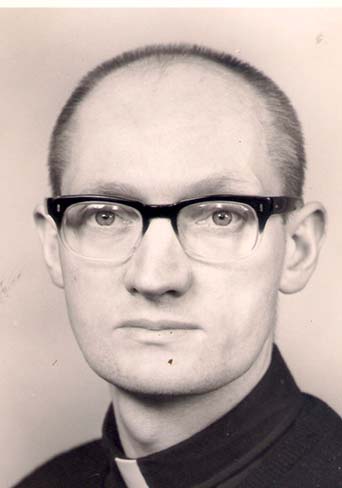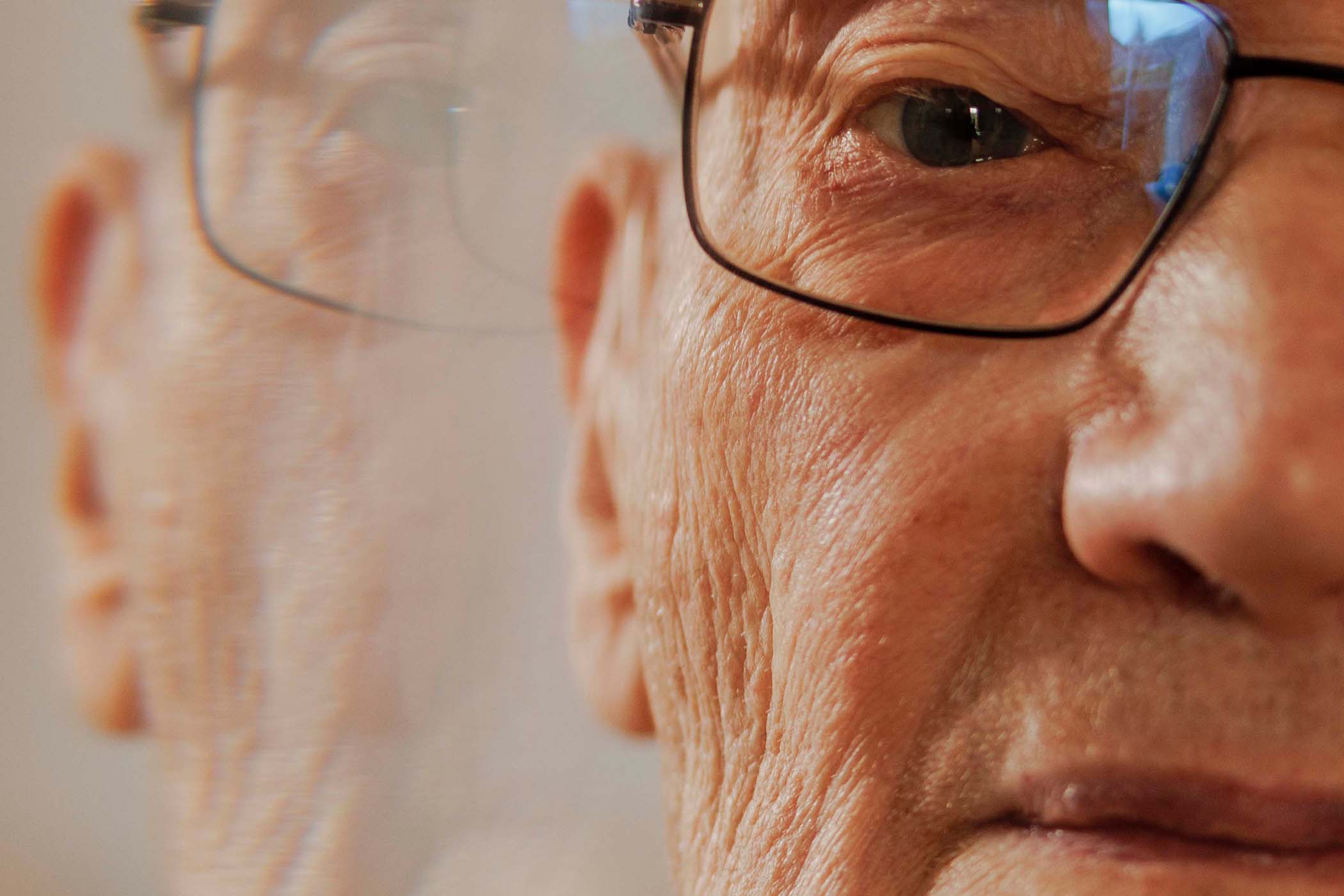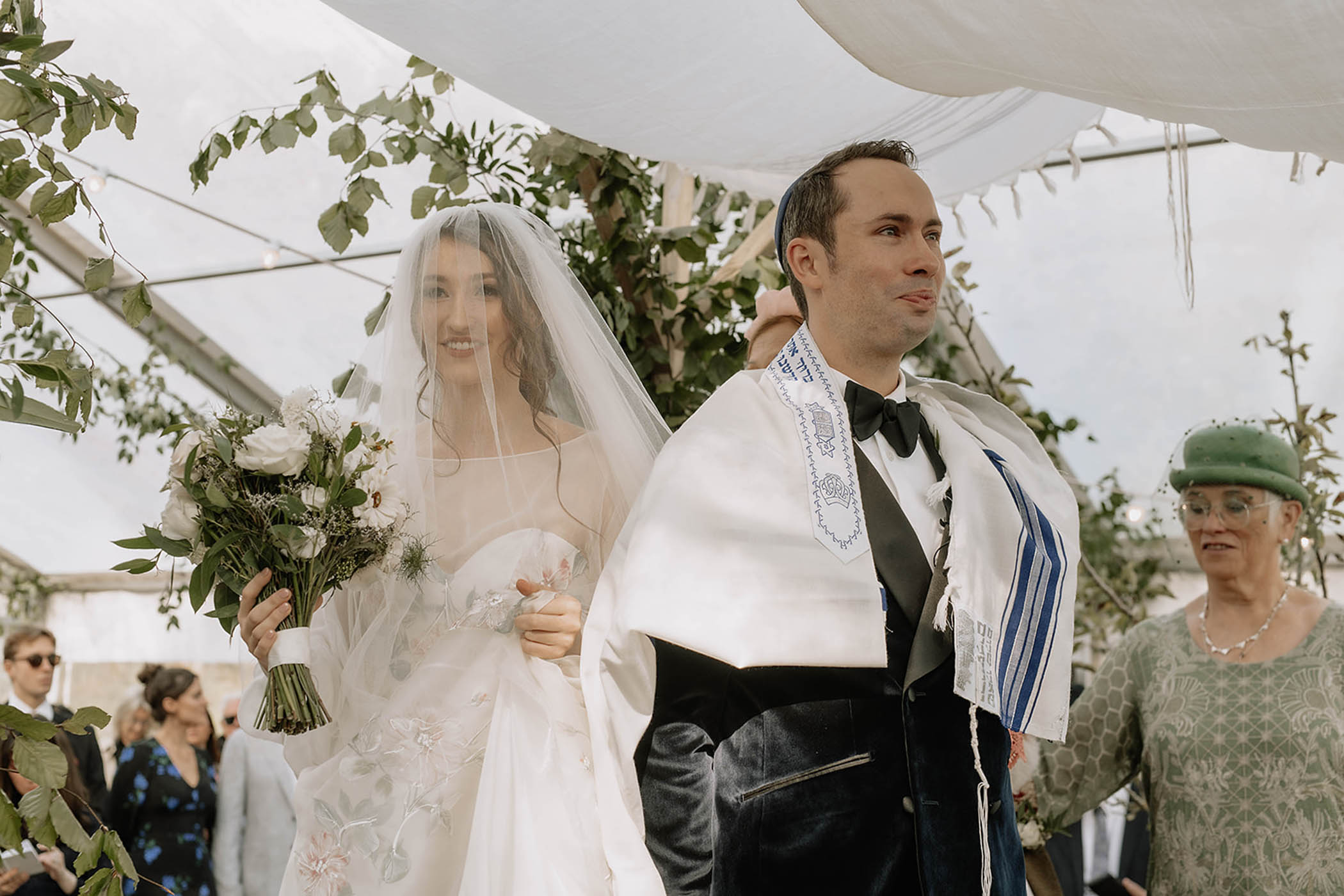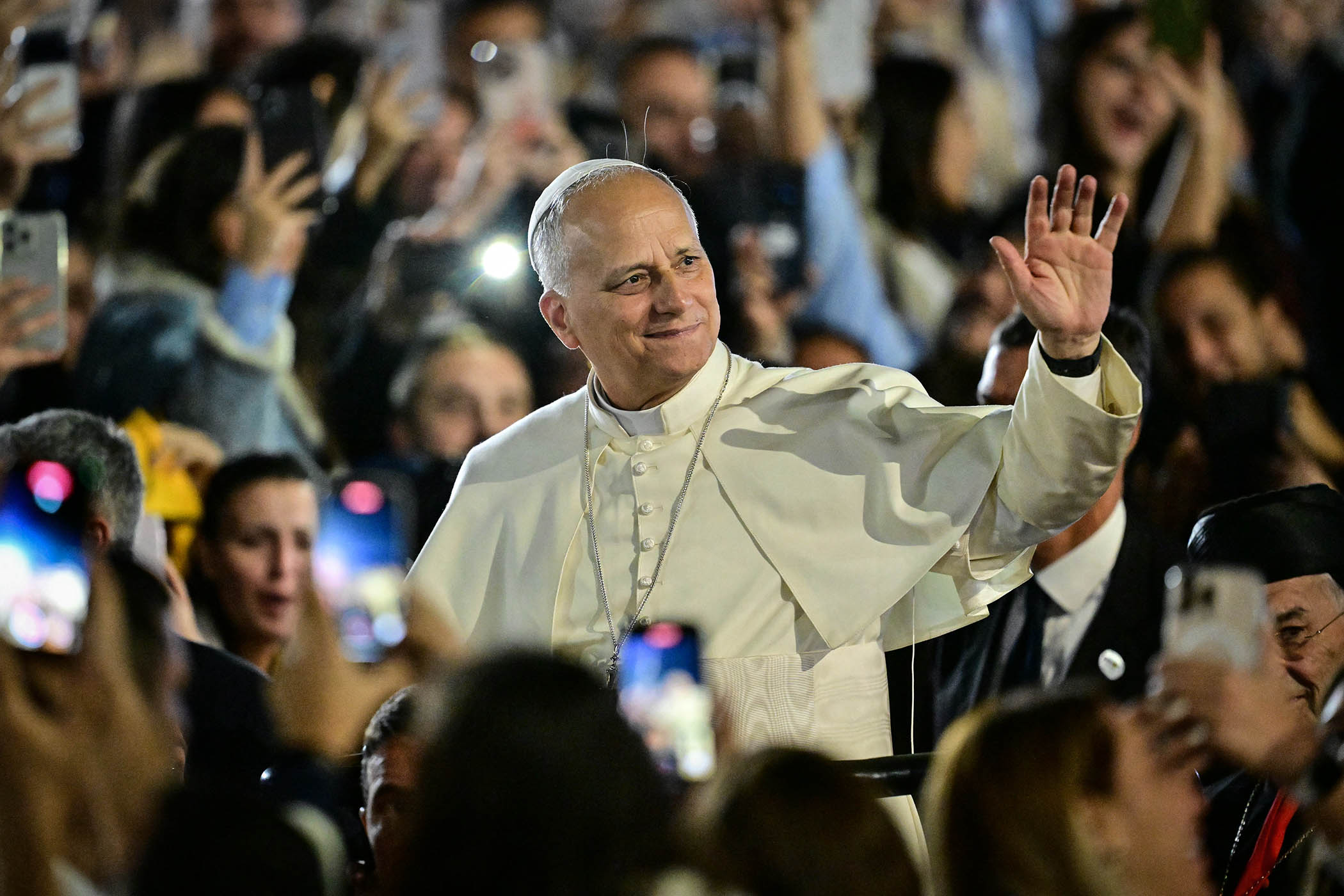Parked on an armchair in his generous Edinburgh living room, Richard Holloway – formerly Scotland’s most senior Anglican, now an outspoken sceptic of organised faith – runs quickly through the pleasantries and gets straight to preaching. “I’ve spent a life wrestling with the big questions,” he begins. “Why is there something and not just nothing? What is life about? Humans are the only animals asking these questions. My wee cat just gets on with being a cat.” But us? “We look for meaning, inventing philosophy and religion. That has always fascinated me.”
These meaty subjects preoccupied Holloway through his four decades in the priesthood – while posted in England, the United States and colonial Ghana, then in his native Scotland as Bishop of Edinburgh, too – and latterly, as a prolific author. “In all my books… I’ve forgotten exactly how many I’ve written now, one minute…”
Up Holloway springs towards the mantelpiece to grab a copy of his latest from a pile. Given he’s 91, I’d declined refreshments on arrival (the kitchen appearing to be down a flight of steep townhouse stairs), but gallantry, it soon transpired, was entirely unwarranted. Holloway jumps up a further eight times in our hour together.
Book in hand, he flicks to the front, starts to tot up his literary output, then tires of the task before compilation. “God, yes, well it’s a lot, the first being from 1972. You can count them up in your own time, son.” (The figure is 34, among them On Reflection: Looking for Life’s Meaning, also Waiting for the Last Bus: Reflections on Life and Death and the latest addition, Last Words.)
A fair few of their titles, I suggest, imply they might have been his last. His laugh is deep and playful. “Well, they each might have been. At some stage, I will shut up and die. Until then, I’ll keep going.”
Each book offers reflections on the cocktail of concerns that eventually turned him off religion and why, in early 2000, the vicar ran away from the Church. “I know, I know,” Holloway concedes, shaking his head. “A crisis in faith isn’t the snappiest of punchlines. But that is what happened.”
Often, during his stint as an Oxford vicar in the mid-1980s, Holloway would stand in contemplation on the church’s threshold after service. Just outside was the Martyrs’ Memorial – a tribute to 16th-century English Protestant reformers executed for refusing to renounce their faith in favour of Catholicism. “These alleged heretics were burned to death. What kind of thinking, I’d question, allows you to set fire to people who see the world differently?”
He’d shrug it off and venture back inside, but the thought bothered him. “There have been many thousands of religions over the years; as many as 10,000 on the planet today. Each insists they’ve got it right, the branch of the Christian Church I belonged to included. I grew weary of the constant insistence that my way is right, yours is wrong, and therefore I can punish or harm you.”
He regularly reflected on his time in Accra in the late 1950s. “I arrived just before it became the first British colony in Africa to become independent, posted as the secretary to the city’s last white Bishop.” Witnessing colonial rule firsthand left a mark. “Humans don’t handle power well, and imposing beliefs on others is dangerous.”
At some point, the prospect of eternal life also lost its allure. “I reached a stage a few years ago where, frankly, I’ll be very disappointed if I do wake up on the other side and have to start over again.”
The soul’s immortality, he believes, is of great appeal to many God-fearing folk. Not him. “I have a low boredom threshold. Heaven sounds like a recipe for perpetual tedium. We humans can’t even live side by side in this universe – what good would another be? I’m an old man. I’ve had a long and interesting and complicated life. I want, when I die, for that to be it, thank you.”
“And then there’s the gay thing,” he adds, “that really put me off, and got me into difficulty.” Homophobia in the Church catalysed the high-profile departure from his postings at the turn of the millennium, Holloway was then in his late 60s. Every 10 years, top-tier Anglican bishops descend on Canterbury for the Lambeth Conference – a meeting of the Church’s great and good. “There was one in particular in… the year escapes me.” Up he bounds, to check another of his books for reference. This was 1998, “and it became a homophobic hate-fest.”
A debate on how gay men should be treated in the Church resulted in a motion rejecting same-sex sexual activity as “incompatible with scripture.” Holloway voted against, as reported at the time: “Primus Richard Holloway of Scotland said he ‘never felt this depressed and so close to tears in my life. I feel gutted, I feel betrayed, but the struggle will go on.’ As a heterosexual man, Bishop Holloway said he has been aware of the homophobia experienced by gay and lesbian members of his church, ‘but sitting in there this afternoon I felt it.’”
“The kind of Christianity I was exposed to as a young boy felt benign and kindly,” he explains today, “fairly warm and non-judgmental.” He’d long been troubled by memories of the rector of St Mungo’s, Holloway’s “wee childhood church” in his hometown of Alexandria. “I still remember all his names: James Alexander Nigel MacKay,” Holloway softens as he lists them. “He was an Irishman: bald, with a ridiculous comb-over that flapped in the wind. He was almost certainly gay. He came to a sad end: an alcoholic. A gay priest in the Church in those days had no legitimate outlet for his sexuality. He ended up in a shelter for homeless drunks.”
Holloway never saw his old mentor through these troubled years, but the stories weighed heavy. “He transformed my life. Through him, I found my way into the priesthood.” He pauses. “That must have sowed in me the seed of awareness.”

Richard Holloway left Canterbury in 1988: ‘Something died in me that day’
In 1998, he abruptly left Canterbury. On the drive home to Edinburgh, a wounded Holloway chewed over his choices. “Something died in me that day,” he laments. “I was ashamed and disgusted that I was a bishop in a religion capable of this level of hatred.” Serious soul-searching followed. “Meanwhile, some of the other bishops started a rumour that I had gay children. It’s not true, mind, but it wouldn’t have mattered to me if it was.”
Within two years, he’d resigned, having published Godless Morality, Keeping Religion Out of Ethics. Its thesis was that “religious passions and perspectives should be kept separate from the fundamentals of how we treat each other.”
His disparagement of the Church grew over time, yet 25 years on, Holloway’s white-and-crimson Bishop’s robes still hang from a peg in his study. “Honestly, I just never got rid of them,” he offers, not entirely convincingly, and then, “I suppose I still have a fondness for post-enlightenment liberal Christianity.” His antipathy has softened; some Sundays, you’ll find him pew-perching at the back of Old Saint Paul’s church, his former parish. Mostly, he says, he’s welcomed with warmth, “though the sermons I do struggle with”.
I think it odd that the universe exists. Scientists are also bewildered
I think it odd that the universe exists. Scientists are also bewildered
Does he, then, still believe in God? Holloway cocks his head. “I’m agnostic about that,” comes his eventual reply. “I don’t know. I think it odd that the universe exists. Scientists are also bewildered. Our history, life on other planets, it’s all a mystery. Religions have been too confident in solving them, so I shouldn’t be.”
Faith isn’t all Holloway has seen falter in recent years. Married, and with three adult children, he’s sharp, and seems in good shape. “Only as you get older,” he says, “you draw back.” He exhales slowly. Having left the Church, yomping through the hills of his much-beloved Pentlands offered spiritual nourishment. Then, last year, he suffered a mild TIA (mini stroke) while rambling and hung up his hiking boots. “That was a great sadness. I didn’t want to meet my end out there alone, only to be found by some unlucky walker days later.” Part of ageing, he suggests, is “growing to accept limitations. I use a walking stick, but I can still stroll through the streets or the Meadows [park in Edinburgh]. Take the kicks where you find them.”
Without Christianity to guide, I ask, where does he turn for meaning? “In the parables of Jesus,” he replies, with the flicker of a smile. “It’s there I still find purpose. The parable of the Good Samaritan in particular.” That wasn’t taught at my childhood synagogue, I explain. Holloway clears his throat, and prepares again to minister.
“While en route to Jericho,” he begins, “A traveler encounters thieves who rough him up and rob him. He’s left, wounded and alone. Down the road comes a Samaritan – they were considered heretics at the time. He sees the man lying on the wayside, takes him to an inn, has him looked after, and leaves some money for when the man comes to. It’s a parable in which enemies interact. It asks us to put our bleeding, wounded humanity at the centre of things.”
We sit for a moment in silence. “Maybe it’s banal,” he says, eventually, “I just think we should be kind. Instead, we’re anti-refugee, beat each other up, kill people in their thousands. Be good, be kind, help the poor, take care of each other while we’re here. That’s what I keep coming back to.”
Last Words by Richard Holloway (Swift Press, £16.99) is out now. Order a copy from observershop.co.uk for £15.29
Newsletters
Choose the newsletters you want to receive
View more
For information about how The Observer protects your data, read our Privacy Policy



